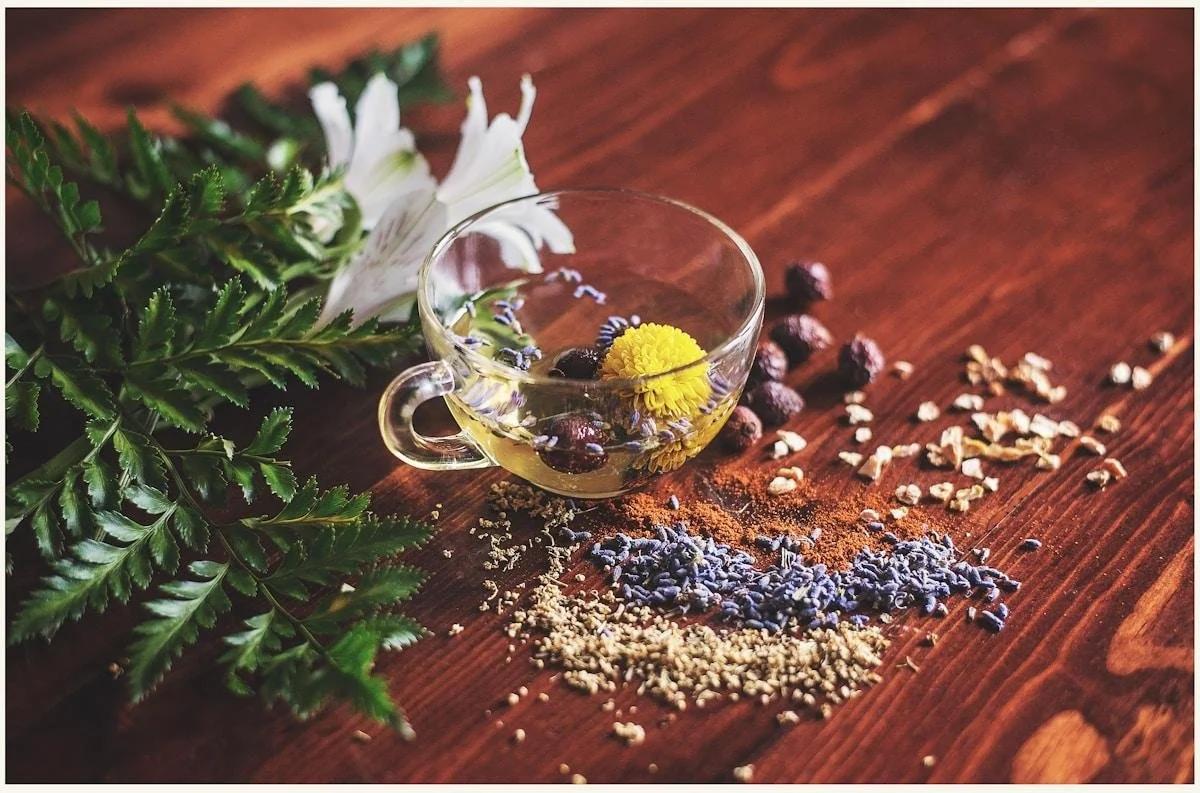The Thing About Herbs
It seems interest in herbs has skyrocketed over the years. And with good reason. They really seem to check all the boxes. They’re natural. Check. They add a lot of depth and flavor in cooking. Check. They have medicinal properties and have been used for centuries. Check. And they’re harmless, right? Umm… not so much.
The thing about herbs is most people tend to overlook that last statement – the “not-so-much” one.
When you consider adding herbs to your routine, it’s important to remember: just like prescription or OTC drugs can interact with each other — causing unpleasant or even dangerous side effects — herbs can interact with your medications in the same way. So while they come from nature, they should be approached with the same level of caution as medications.
IS IT TOO MUCH OF A GOOD THING?
Many people fall into the trap of thinking, “if some is good, more must be better.” But you’ve heard me say it before -- that type of thinking isn’t true and can even be harmful.
Case in point: you really can drink too much water and end up in the hospital. Herbs are no different.
One that comes to mind is one of my favorites: turmeric. Considered both an herb and a spice, this golden jewel offers impressive benefits from joint pain relief to brain health and Alzheimer’s risk reduction. But taking too much — something that’s easier to do than you might think — can damage your liver.
Here are some other common examples.
Garlic supplements: Helpful for cholesterol and heart health, but too much can increase bleeding risk.
Green tea extract: A powerful antioxidant source, but high doses have been linked to liver toxicity.
Licorice root: Great for digestion and respiratory issues, but overuse can raise blood pressure and dangerously lower potassium levels.
DO THEY PLAY WELL TOGETHER?
Some herbs don’t mix well — with each other or with medications:
Hibiscus tea: Can lower blood pressure. If you’re already on medication for hypertension, this may drop levels too far.
Ashwagandha + valerian: Both promote calm and sleep, but together they can cause excessive drowsiness. Each may also interact negatively with seizure medications, reducing effectiveness.
Kava kava with antidepressants or seizure medications: This combo can increase risks for liver damage and nervous system complications.
St. John’s wort: Commonly taken for mild depression, it can interfere with birth control, antidepressants, blood thinners, and even anesthesia.
Ginkgo biloba: Sometimes used for memory, it can raise bleeding risk when combined with blood thinners.
TAKE HOME
To safely enjoy the bounty of herbs our planet has to offer, keep these two non-negotiables in mind:
Do your research. Always check how an herb may affect medications you’re taking, and be careful about doubling up on the same herb in multiple forms (e.g., turmeric tea + golden milk + turmeric supplement all in one day).
Tell your doctor and pharmacist about any herbs or supplements you’re using. Treat them as medications with the potential for powerful effects and interactions.
Herbs can absolutely be a fabulous addition to your health routine — you just need to be informed and intentional before digging in.
If you’re ready to explore how nutrition, including herbs, can support your health and wellness goals, I’d love to help. Request a free consult and let’s start building a plan that works for you.
Until next time….
Eat Well,


